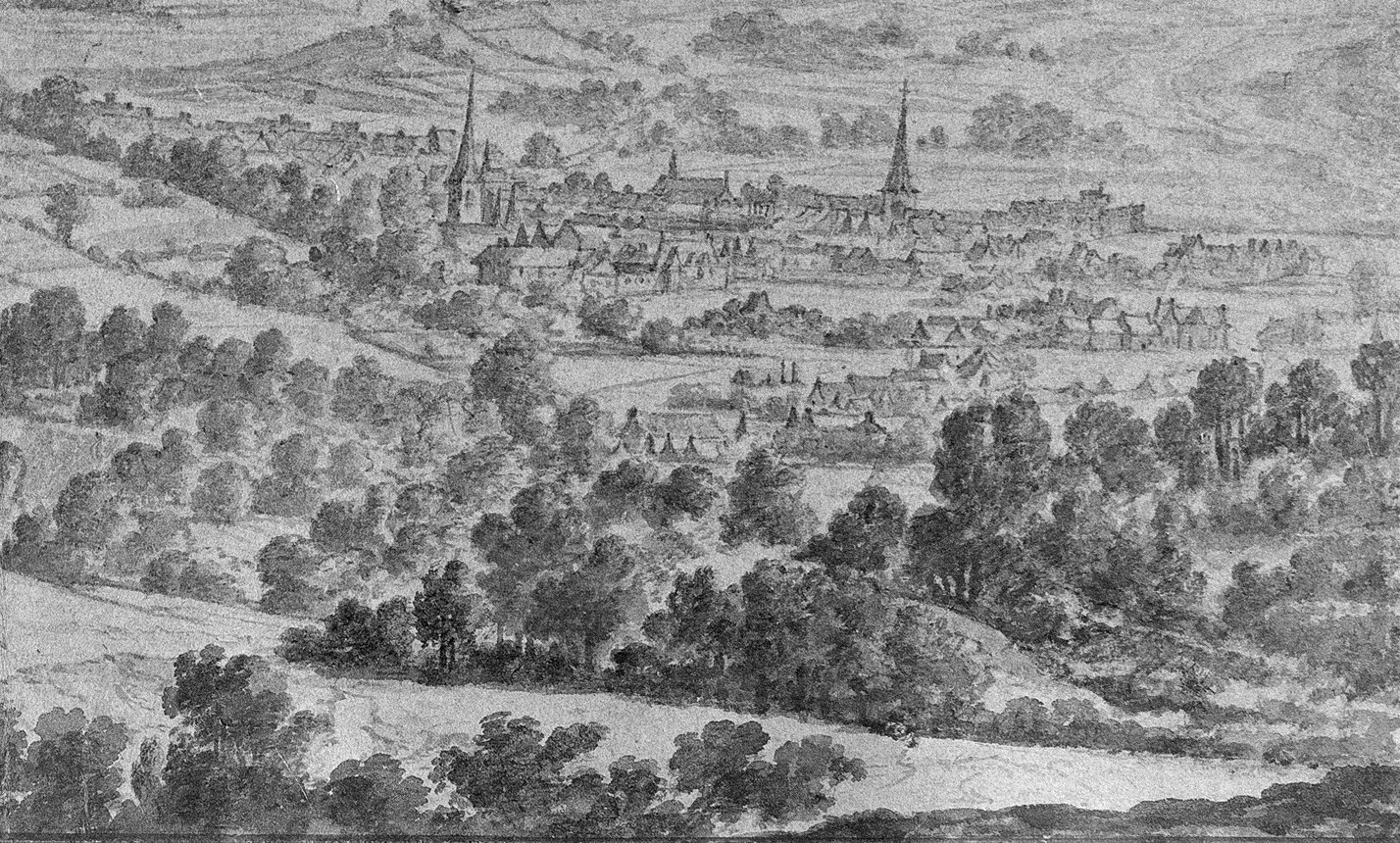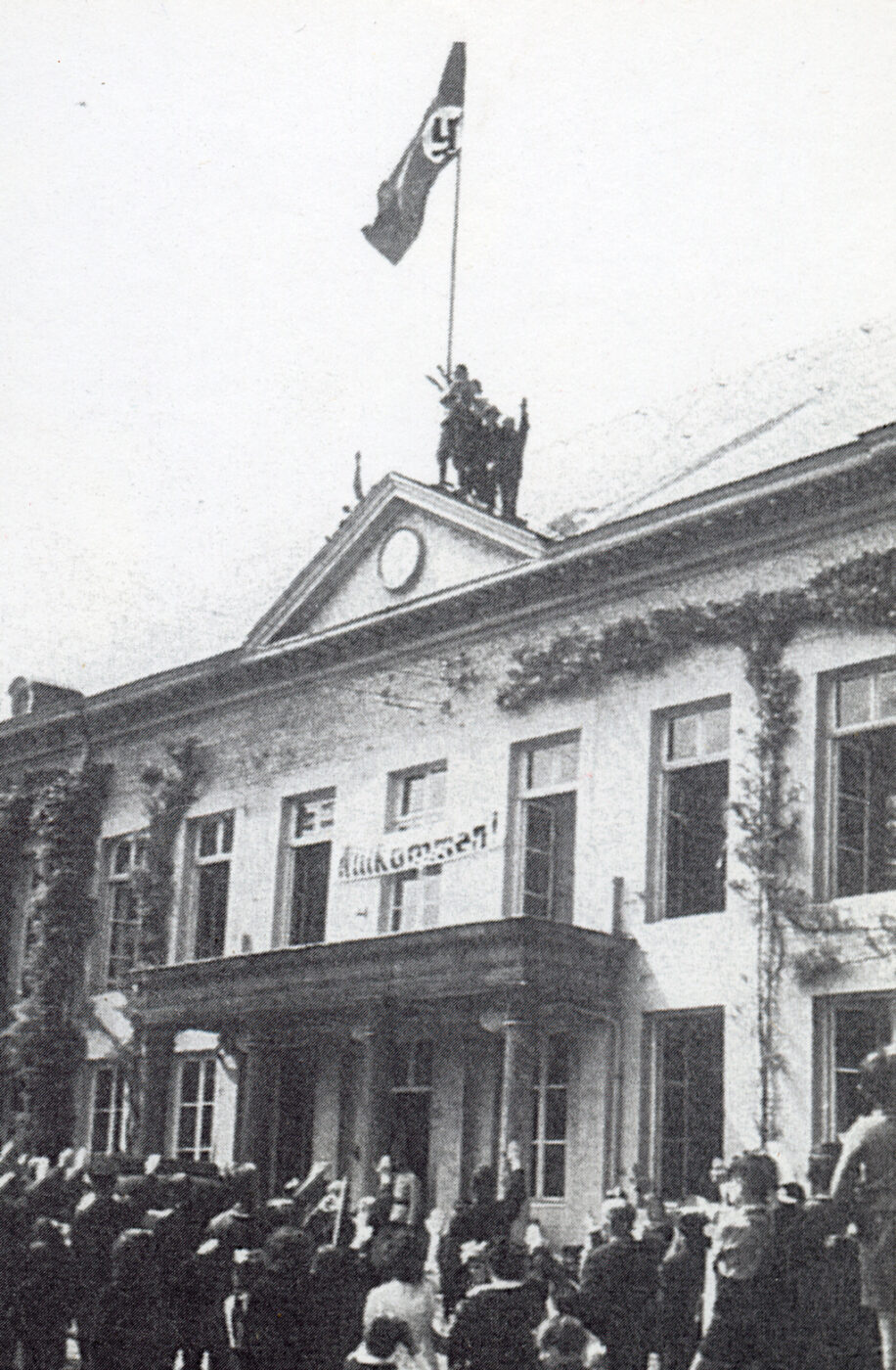The reality was more nuanced than that. For sure, many cheering people stood along the roadside and gave gifts to the soldiers. They were welcomed ‘liberation’ by Germany. How many opportunists sided with the supposed victors? How many stayed in their homes? How many were paralysed by the fear of war? How many knew that they would lose the democratic freedoms of the Belgian state? How many were capable of seeing that soon in the Nazi regime the terrible dictatorship that was to engulf Europe in a devastating war? Undoubtedly, there were both: tremendous enthusiasm and boundless dismay – and all shades in between the two.
Many inhabitants of what is now East Belgium believed that from 1940 onwards, they were experiencing the Germany of which they had had an idealised image for twenty years. Only gradually did their experience of the ‘Third Reich’ turn first into disenchantment and disappointment. This disappointment was reinforced by hard experiences: from September 1941 on, the first men were drafted into the Wehrmacht. 3,200 were killed. The totalitarian state sought control over all areas of life. Dissenters were persecuted, deported, killed. In addition, the inhabitants of Eupen and Malmedy lived as full citizens in the ‘Third Reich’ with all its obligations: young people were coerced into becoming members of the Hitler Youth; adults were compelled to join National Socialist organisations. Their everyday lives were very different from those in occupied Belgium. Yet all this does not mean that they were all National Socialists, or that they identified with some, or all, of National Socialist ideas.
It is important to make this distinction: Many Europeans were fascinated by the extreme-right and extreme-left parties of their countries in the 1930s. These parties promised people the realisation of political utopias, i.e. alleged ideal worlds outside the rule of law and democracy, so that they often accepted cooperation with these extreme parties or dictatorships. This was also true of some of the inhabitants of Eupen and Malmedy. But they were not only seduced. When looking at history, it should not be overlooked that there is a difference between political affiliation and the desire to belong to a state.
It is often difficult to differentiate: there were convinced National Socialists in East Belgium. Some East Belgians accepted the National Socialist dictatorship in order to regain their status as German citizens. Others were opportunists. There was no organised resistance in the region. Resisters generally fled to the occupied territory, where they joined an existing resistance network. Around 60 people from the region were killed in prison or in a concentration camp.
-
![Michel_Pauly]()
Michel Pauly -
Opinion:
‘In Luxembourg today, we still have many discussions about who became a ‘Nazi’, or rather: a collaborator, or, pejoratively in Luxembourgish: a ‘Gielemännchen’ (literally: ‘little yellow man’; ‘yellow’ due to the light brown Nazi uniforms) during the Second World War. The term ‘Gielemännchen’ was widely used after the Second World War, regardless of whether there was truth in the accusation or not. All Luxembourgers who had taken on a certain role within the National Socialist administration of Luxembourg were suspected of being a ‘Gielemännchen’, irrespective of whether they had done so under pressure or not. Loathing of all things German and whatever could be associated with it were causes of slander and insinuation, as well as grief over personal losses and war experiences. A motive based on hatred and grief may thus be the desire for retribution, with the intention to make one’s own losses more bearable.’
In remembrance culture, it becomes clear how such names constitute attempts to distance oneself from the group of perpetrators, from those who had actively supported this inhuman regime, as well as from fellow-runners and those who had remained indifferent.
-
Judith Molitor
Opinion:
‘As far as I understand my environment, it was similar in the Eifel, and presumably in all German or occupied territories. Our grandparents’ generation still remembers people in their village and regional surroundings who were loyal to the regime. This refers to all people who were openly Nazi in their expression of opinion and/or held a corresponding office, for example that of a district leader or a leader of the Leage of German Girls (BDM, Bund Deutscher Mädel). Not until more recently have discussions about the previous generations’ involvement in the emergence of the dictatorship picked up speed.’
-
![Claudia Kühnen_Aachen]()
Claudia Kühnen
Opinion:
‘As far as I learned and was told, all Germans were Nazis for the whole world. The Germans themselves did not want to come to terms with what had happened during the war, and really only wished to forget. The population met denazification by the Allies met with reluctance – no one had noticed anything, everyone had only taken part out of fear for their own lives and the lives of their families, and even known Nazis were partly reinstated in their old posts – as judges, for example. It was the next generation, that of the children of the perpetrators/victims/members, which began confrontation with the ‘past’ and the misdeeds during the war years (and also before), and this shaped society in the 1960s as a political issue."
-
![Adeline_Moons]()
Adeline Moons -
Jeroen Petit
Opinion:
‘The culture of remembrance of collaboration makes it clear that there is often an attempt to distance oneself from those people who supported the regime as fellow-runners or through indifference. In Flanders, too, there are groups that want to wash their hands of this. Likewise, there were supporters of the dictatorial regime in Flanders for various reasons: because people try to exculpate themselves from collaboration on the one hand, while following the regime for various reasons on the other; consequently, these groups also all have differing definitions of what constitutes a Nazi.’




